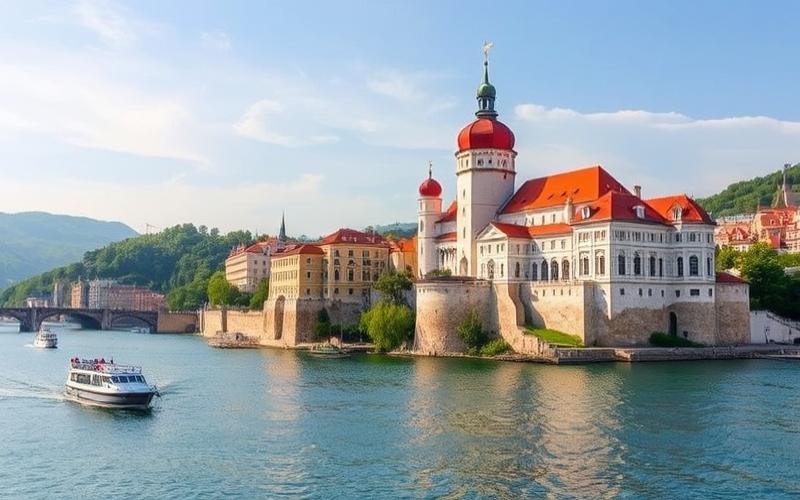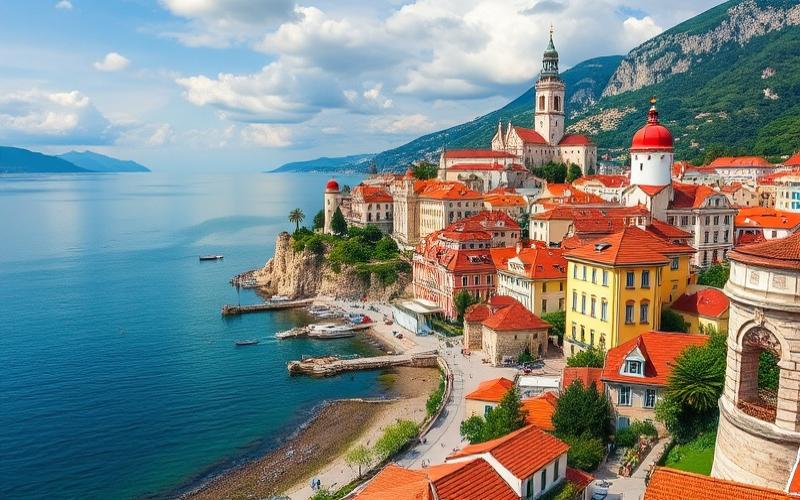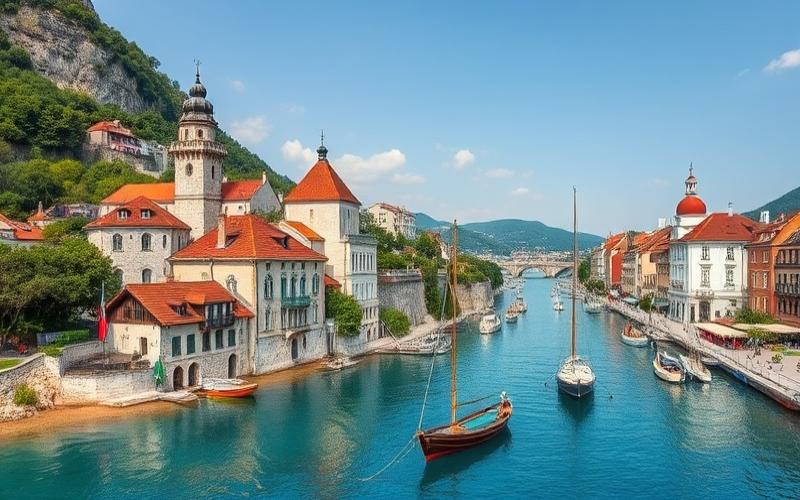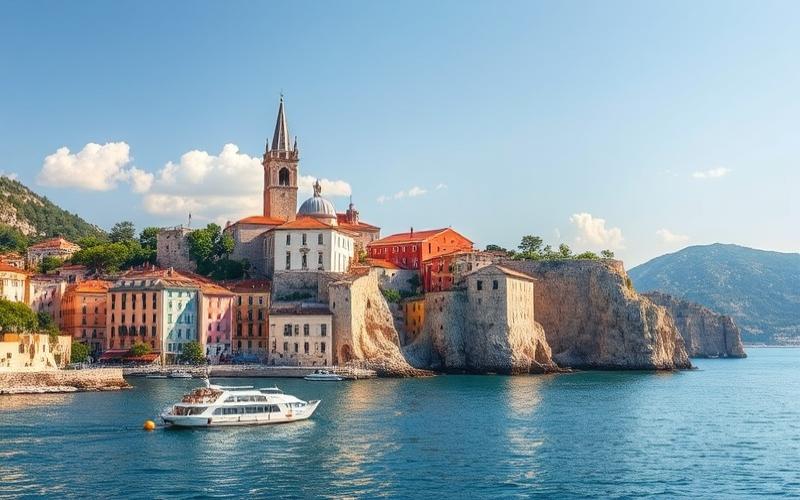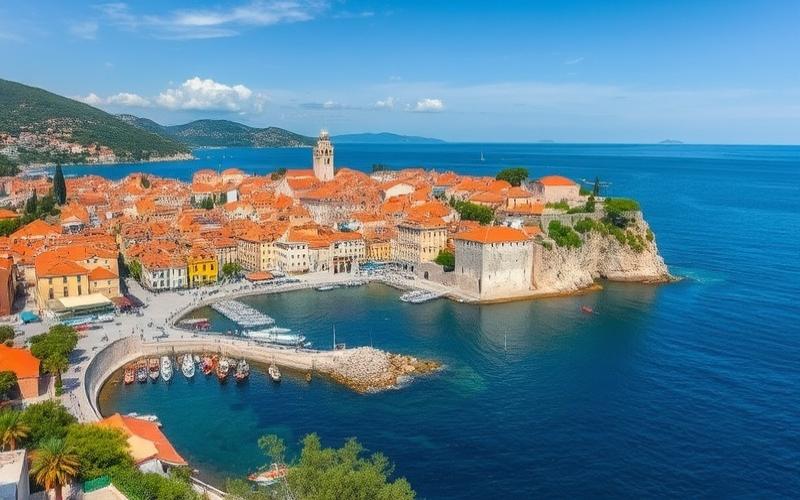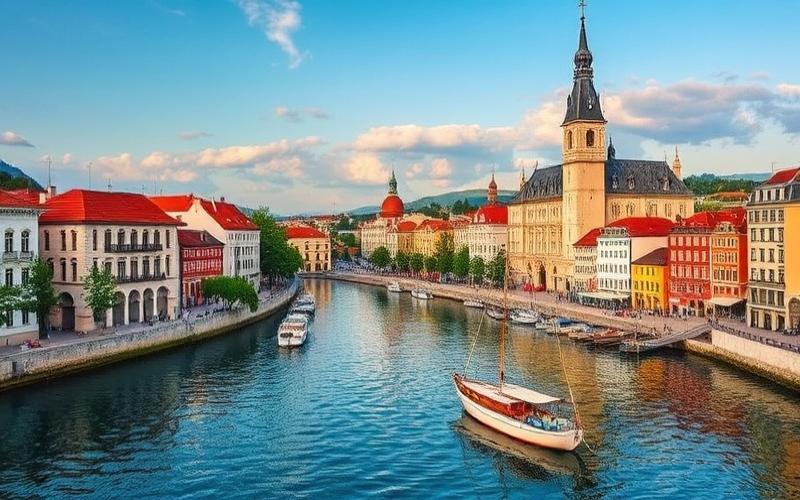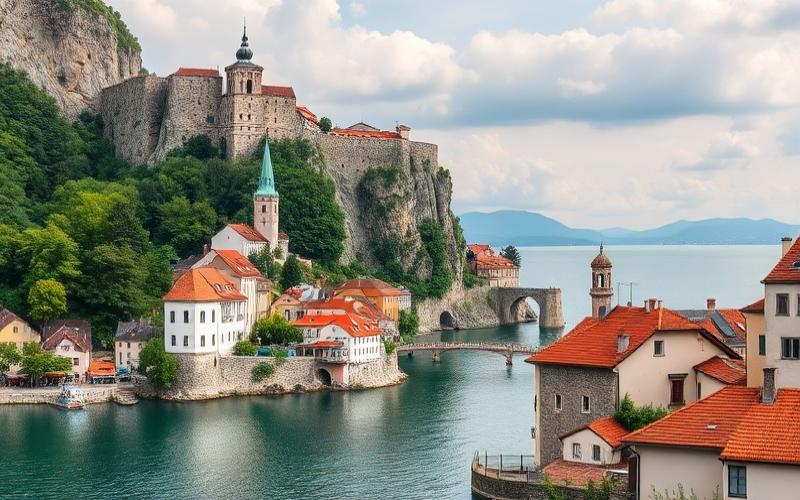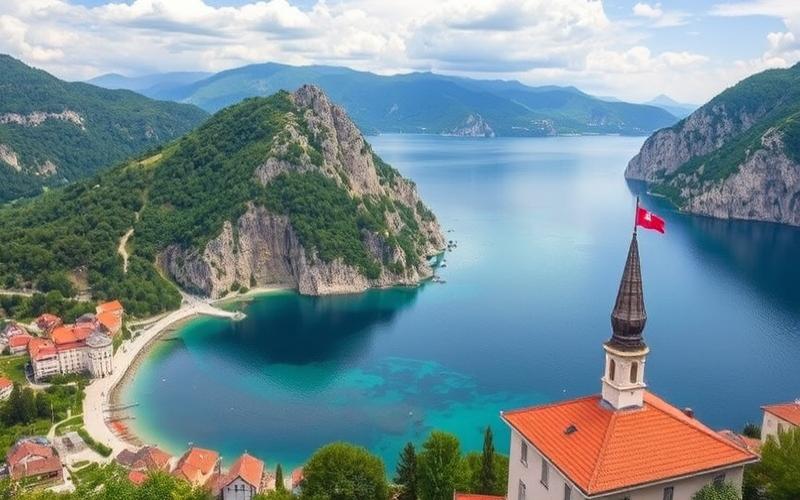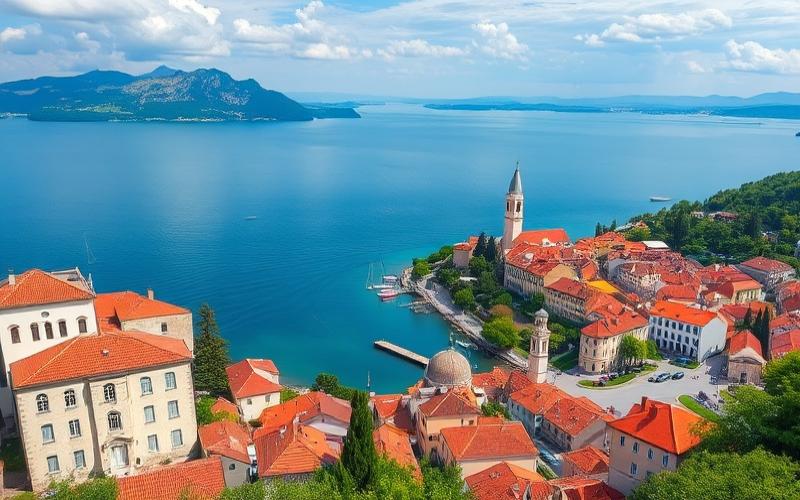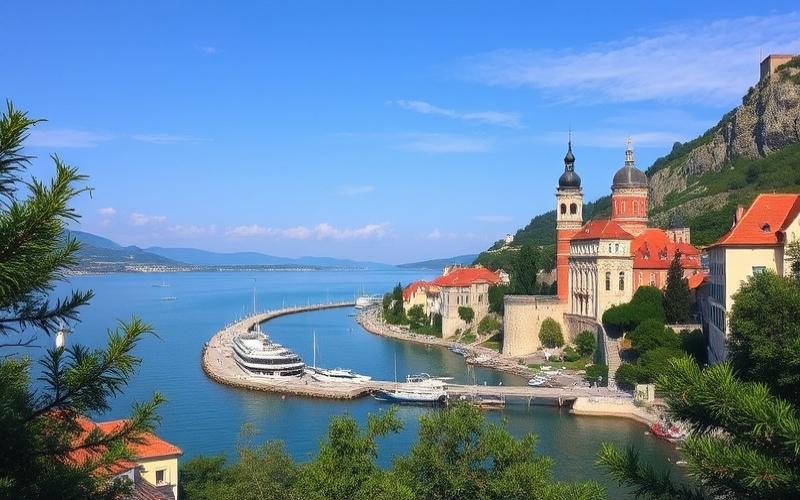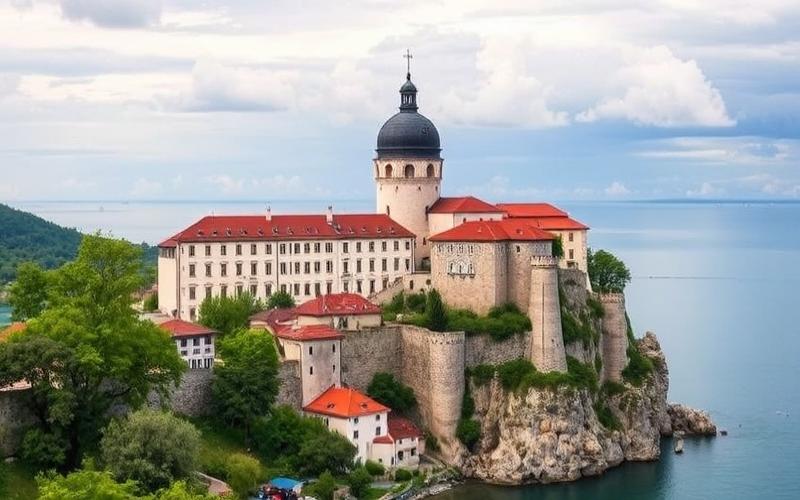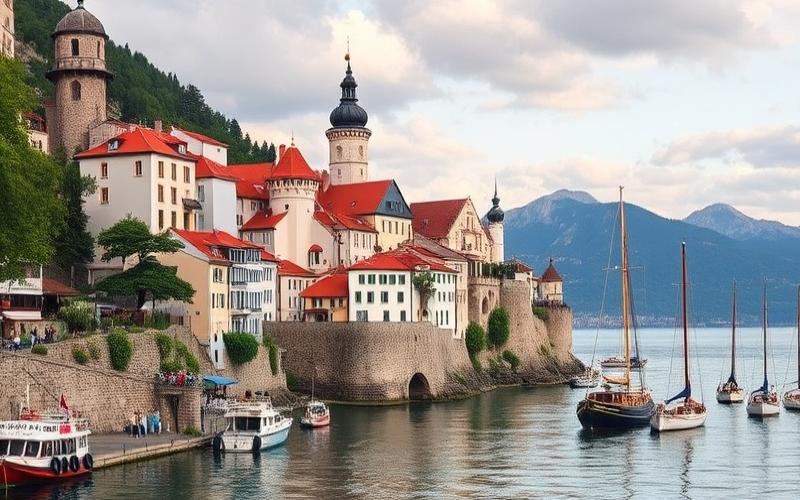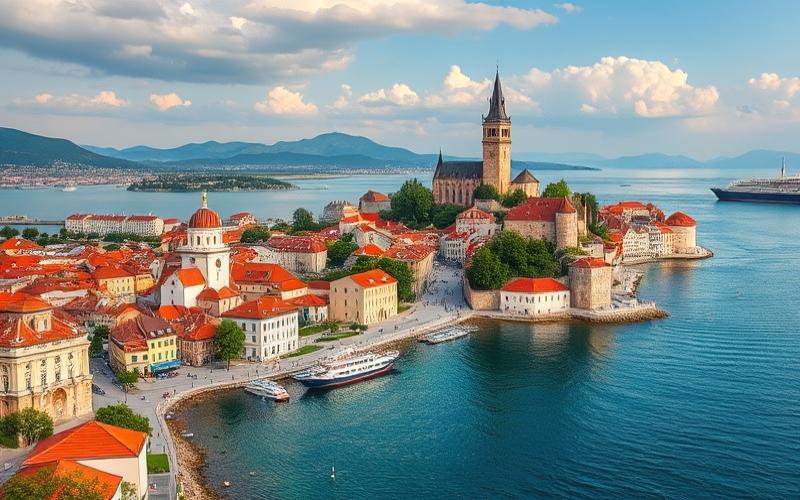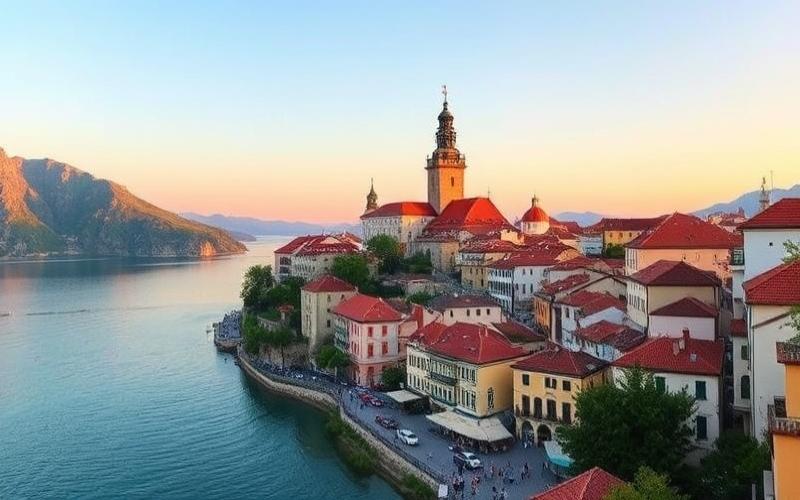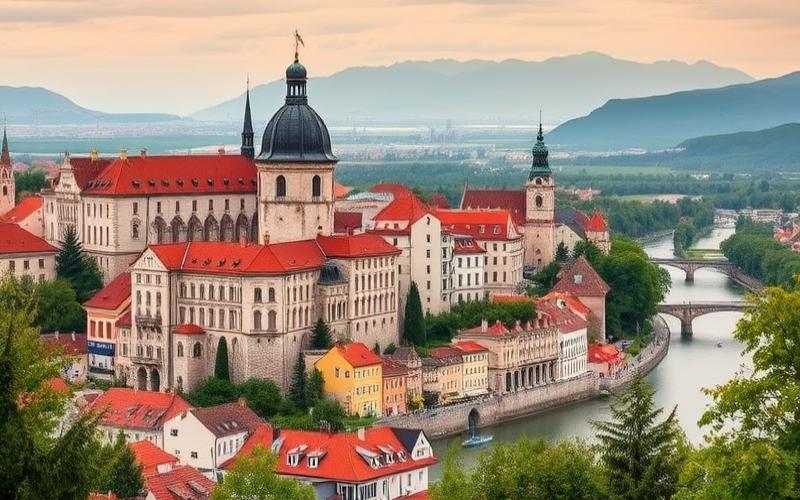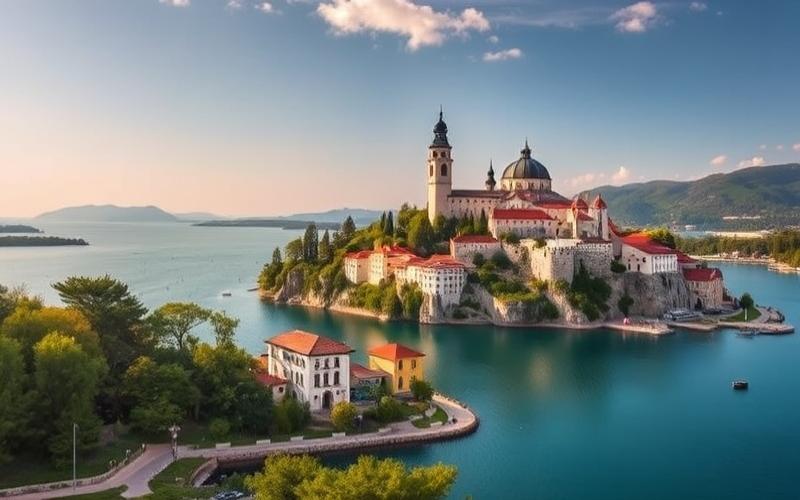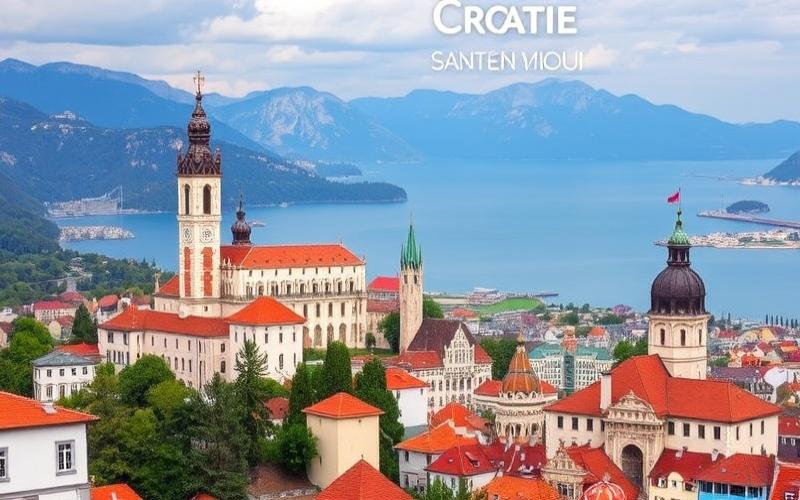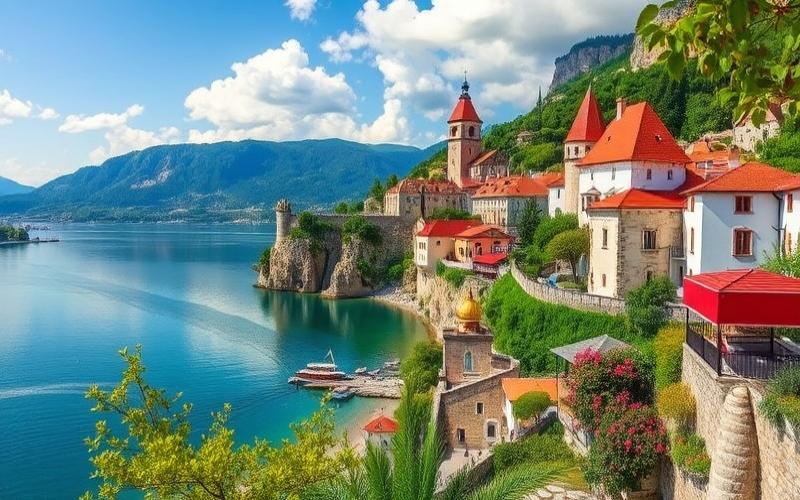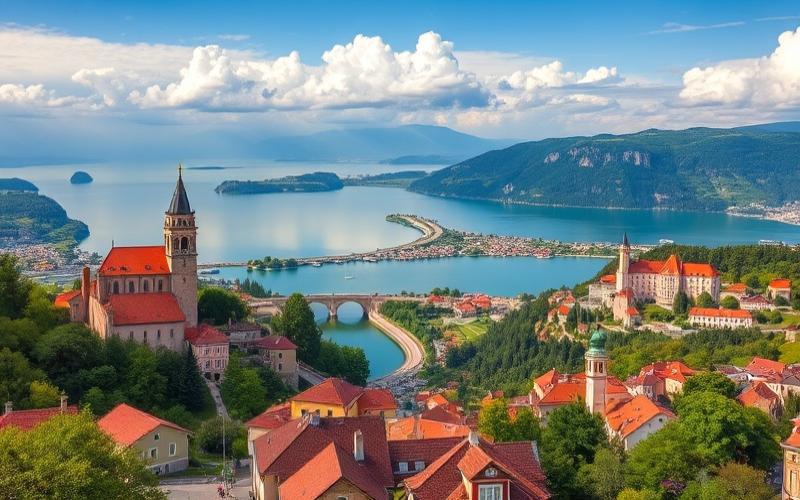
 Published on and written by Cyril Jarnias
Published on and written by Cyril Jarnias
Relocating to Croatia to pursue professional ambitions represents an exciting adventure that brings not only cultural discoveries but also unique challenges.
In a rapidly growing job market, familiarizing yourself with local specifics while building a strong professional network is essential for success.
Whether through participating in networking events, getting involved in local associations, or effectively using digital platforms, expatriates have multiple opportunities to connect with influential professionals in the country.
This article explores the most effective strategies and essential tools to maximize opportunities and thrive in this dynamic and welcoming environment.
Identifying Professional Events and Associations in Croatia
| Event | Sector | Location | Typical Dates | Networking Relevance |
|---|---|---|---|---|
| VIROEXPO | Economy, crafts, agriculture | Virovitica | February (14-16/02/2025) | Broad mix of professionals, partnership opportunities, sector meetings |
| SOLARPLAZA SUMMIT BALKANS | Energy, renewables | Zagreb (Hotel Dubrovnik) | October (21/10/2025) | Ideal for energy sector, exchanges with Balkan decision-makers |
| INTERLIBER | Books, publishing, sciences | Zagreb (Zagreb Fair) | November (11-16/11/2025) | Platform for publishers, authors, media; excellent for creative and educational fields |
| CROAGRO | Agriculture, machinery | Zagreb (Zagreb Fair) | December (04-07/12/2025) | Agribusiness gathering, agricultural innovation, sector networking |
| FOOD & HEALTHY LIVING FAIRS | Food industry, health | Zagreb (Zagreb Fair) | December (04-07/12/2025) | For wellness, food, nutrition professionals |
| BEAUTY & HAIR EXPO | Cosmetics, beauty | Zagreb (Zagreb Fair) | January (31/01-01/02/2026) | Opportunities in beauty and wellness, B2B meetings |
| NAUTIKA / ZAGREB BOAT SHOW | Nautical, marine industry | Zagreb (Zagreb Fair) | February (18-22/02/2026) | Networking with nautical industry players, innovations, exporters |
| HUNTING AND FISHING EQUIPMENT FAIR | Hunting, fishing | Zagreb (Zagreb Fair) | February (20-22/02/2026) | Outdoor niche, connections with manufacturers and distributors |
| BIAM & WELDING | Machine tools, welding | Zagreb (Zagreb Fair) | April (14-17/04/2026) | Engineering, heavy industry, technical innovations |
| DENTEX | Dental medicine | Zagreb (Zagreb Fair) | May (21-23/05/2026) | Medical and paramedical network, health innovations |
| AMBIENTA | Furniture, design | Zagreb (Zagreb Fair) | September (annual) | Architecture, interior design, creative opportunities |
| INOVA | Innovation, start-ups | Zagreb (Zagreb Fair) | September (annual) | For entrepreneurs, start-ups, inventors |
| ADRIATIC SEA DEFENSE & AEROSPACE | Defense, aerospace | Zagreb (Arena Zagreb) | April (27-29/04/2027) | High-tech industry, international networking |
Relevance for expatriates:
- These events attract numerous local and international professionals, facilitating the creation of a diverse network.
- Thematic sector fairs allow targeting strategic contacts according to your field.
Professional Associations Present in Croatia
| Association | Scope | Sector(s) | Openness to Expatriates | Benefits |
|---|---|---|---|---|
| Croatian Chamber of Economy (HGK) | National | All sectors | Yes, individual and corporate members | Access to events, training, directory |
| American Chamber of Commerce (AmCham Croatia) | International | Multi-sector, US business | Yes, expatriate members welcome | Networking, lobbying, mentoring, resources |
| French-Croatian Chamber of Commerce | International | Multi-sector, French business | Yes, French and French-speaking members | Access to Croatian/French markets, networking |
| Association of Foreign Investors in Croatia | International | Investment, businesses | Yes, focused on welcoming expatriates | Seminars, sector groups, mutual support |
| Croatian Employers’ Association (HUP) | National | Businesses, management | Yes, depending on professional profile | Workshops, events, lobbying, mentoring |
| Sector networks (e.g., Croatian IT Cluster, medical associations, industrial clusters) | National and regional | Specific to sector | Variable, often open to foreign profiles | Sector exchanges, sharing best practices |
Benefits of Joining a Professional Association:
- Privileged access to networking events, trade shows, conferences, and workshops.
- Exclusive resources: market studies, newsletters, contact databases, job offers.
- Mentoring: opportunity to be guided by experienced professionals, expertise exchanges.
- Local integration: better understanding of Croatian practices, support in professional procedures.
- Increased visibility: listing in directories, opportunities to present activities.
Practical Tips to Optimize Participation:
- Prepare a business card and professional pitch in English (and Croatian depending on the sector).
- Actively participate in workshops, conferences, and roundtables to multiply contacts.
- Follow associations and events on LinkedIn and other networks to stay informed of opportunities.
- Get involved in working groups, committees, or thematic commissions within associations.
- After each event, follow up with key contacts with a personalized message.
- Take advantage of mentoring offers to accelerate integration and understand local codes.
- Vary events (sector fairs, general conferences, after-work events) to broaden network diversity.
- Be proactive in proposing collaborations or joint projects.
A strong network in Croatia is built by combining regular participation in major professional events and active involvement in sector and international associations.
Good to know:
Participate in Web Summer Camp in Rovinj in August for web development professionals, and join American Chamber of Commerce events that offer unique networking opportunities for expatriates. Joining the national Croatian Employers’ Association provides access to seminars and resources for better integration into the local economic market.
Understanding Local Business Etiquette
Presentation During a Meeting
- Introduce yourself with a firm handshake, looking your interlocutor in the eyes.
- Use a formal greeting: “Mr./Ms.” followed by the last name.
- Avoid interrupting, wait for the host to invite you to sit.
Appropriate Dress Code
| Context | Recommended Attire |
|---|---|
| Formal meeting | Dark suit, classic shirt, tie for men; suit or sober dress for women. |
| Informal networking | Smart casual professional attire. Avoid overly casual clothing (jeans, sneakers to avoid). |
Punctuality
- Punctuality is highly valued. Arrive 5 to 10 minutes early.
- Notify if delayed, even minimally.
Business Card Exchange
- Exchange business cards during initial introductions, after the handshake.
- Present the card facing the interlocutor, taking time to read the received card before storing it.
Greetings and Respect for Professional Titles
- Use academic and professional titles (Dr., Eng., Prof., etc.) during first meetings and in formal exchanges.
- Formal greetings are expected at the beginning and end of meetings.
- Informal greetings are reserved for established relationships or less formal settings.
Business Lunches and Networking Events
- Business lunches typically begin after formal exchanges and initial contact.
- It’s common for the host to invite and pay the bill; offering to pay may be perceived as impolite.
- Alcohol is sometimes served, but moderation is expected.
- During networking events, engage in conversation on professional topics first, then move to personal subjects if the interlocutor does so.
Cultural Values and Behavior Adaptation
- Hospitality is a strong value: accept offered drinks or refreshments, thank warmly.
- Transparency and honesty are appreciated; avoid unkept promises or evasive answers.
- Show genuine interest in local culture and country history.
Tips for Building Trust with Croatian Professionals
- Demonstrate respect, active listening, and discretion.
- Take time to build the relationship before addressing sensitive topics or negotiating.
- Be direct while remaining diplomatic.
- Show loyalty and consistency in commitments.
Key Takeaways
- Always prioritize courtesy and formality during initial contacts.
- Gradually adjust familiarity level according to the established relationship.
- Respect hierarchy and value professional titles.
- Integrate into Croatian conviviality without forcing closeness.
Good to know:
In Croatia, prioritize formal greetings with titles, be punctual for meetings, and choose elegant but sober attire; friendly business card exchange is common during business meals, reflecting hospitality and the importance of transparency. Ensure you respect cultural norms by being direct yet cordial, especially during networking events where establishing mutual trust is crucial.
Building Sustainable Multicultural Business Relationships
Understanding cultural nuances in Croatia is essential for building sustainable business relationships. Respecting local customs, socio-cultural values, and communication styles helps avoid misunderstandings and promotes mutual trust. Croatian society values hierarchy, politeness, punctuality in professional settings, and places great importance on distinguishing between formal (Vi) and informal (ti) address. Greetings are ritualized: using “Dobar dan” in professional contexts is expected, while “Bok” is reserved for informal situations. A smile and attentive listening are highly appreciated. Interrupting or raising your voice, especially with elders, should be avoided.
| Expression | Translation | Usage Context |
|---|---|---|
| Dobar dan | Good day (formal) | Professional, daytime |
| Bok | Hi (informal) | Friends, young people |
| Hvala | Thank you | All situations |
| Molim | Please | Polite request |
The Croatian language remains a central vector of cultural values. Even though English is commonly used in business, showing interest in the Croatian language—even by mastering polite phrases and a few expressions—is perceived as a sign of respect and facilitates authentic integration. Even modest effort to use Croatian strengthens closeness and trust.
Professional Practices in Croatia
Professional practices in Croatia that foster lasting relationships include:
- Punctuality for business meetings.
- A direct but respectful negotiation style: price negotiation is less common than elsewhere, and respecting displayed prices is expected.
- Conflict management favors calm discussion, respect for hierarchy, and avoiding public confrontations.
- Etiquette requires well-groomed attire, use of professional titles, and respect for meeting agendas.
Practical Tips for Maintaining Established Relationships
- Ensure regular follow-up through personalized messages or calls after a meeting.
- Offer added value: share relevant sector information or invite to local professional events.
- Actively participate in key sector events in Croatia: fairs, festivals, conferences, which are opportunities to maintain networks and demonstrate commitment.
The Impact of Modern Technology
The impact of modern technology is significant: using digital platforms (LinkedIn, WhatsApp, email) helps maintain connections, organize remote meetings, and stay informed about market developments. Local social networks (such as Facebook, very popular in Croatia) facilitate monitoring, event promotion, and partnership valorization.
Success Examples
- A French IT company that successfully established in Croatia attributed its success to hiring bilingual local staff, adapting management methods to the Croatian context, and regular participation in technology fairs in Zagreb.
- An international professional network, after organizing multicultural workshops and supporting language exchanges, observed a 35% increase in partnerships signed with Croatian companies over three years.
- According to statistics, trade exchanges between Croatia and the European Union have grown by over 60% since the country’s EU accession, illustrating the vitality of multicultural business relationships.
Key Tips for Success
- Observe and respect local codes from the first contact.
- Value cultural diversity in communication and management.
- Actively engage in the Croatian economic fabric through event participation and smart use of digital tools.
Remember: Understanding and respecting Croatian cultural specificities, using the local language even at a basic level, adopting good professional practices, and leveraging digital tools are major levers for establishing and sustaining multicultural business relationships in Croatia.
Good to know:
Understanding local Croatian customs and showing basic proficiency in Croatian can facilitate authentic business relationships; moreover, following practices such as punctuality and direct yet respectful conflict management is essential for developing sustainable partnerships. Regularly participate in sector events and leverage digital platforms to maintain and strengthen your multicultural professional network.
Using Chambers of Commerce and Business Clubs
Local and international chambers of commerce in Croatia play a central role for expatriates looking to develop their professional network and effectively integrate into the local economic fabric. Their presence facilitates access to key contacts, market information, and collaboration opportunities.
| Chamber of Commerce | Influence and Role | Examples of Activities |
|---|---|---|
| American Chamber of Commerce (AmCham Croatia) | Very active business network, facilitating exchanges between American, Croatian, and international companies | Conferences, seminars, sector forums, meetings with decision-makers |
| French-Croatian Chamber of Commerce and Industry (CCFCI) | Essential platform for French and Croatian companies; support for understanding local market and business development | Thematic workshops, networking breakfasts, gala evenings, economic missions |
| German, Italian, Austrian Chambers of Commerce | Support for companies from their respective countries, joint events, expert advice | Sector meetings, information sessions, business clubs |
| National Chamber of Commerce and Industry of Croatia | Representation of all business interests in Croatia; entry point for understanding local economy | Professional fairs, trade shows, training sessions |
How These Chambers Facilitate Integration:
- Regular organization of networking events, business meetings, and sector training, enabling network expansion and meeting potential partners.
- Provision of practical advice on legislation, economic trends, and local business practices.
- Access to sector working groups, fostering idea exchange and strategic monitoring.
Sector Business Clubs
In addition to chambers of commerce, participating in specialized business clubs (e.g., Foreign Business Owner’s Association, Digital Nomads Split) offers multiple advantages:
- Access to targeted collaboration opportunities and joint projects.
- Sharing experiences and best practices with professionals from the same sector.
- Workshops addressing industry-specific issues.
Examples of represented sectors: ICT, tourism, energy, real estate, finance.
Tips to Maximize Impact of These Platforms:
- Actively participate in events, ask questions, propose interventions during workshops.
- Prepare a short personal presentation and business cards to facilitate exchanges.
- Follow chamber news through newsletters and social media to not miss any opportunities.
- Be available for informal meetings, which are often as fruitful as official events.
Key Cultural Skills to Adopt:
- Demonstrate respect for Croatian relational codes (punctuality, politeness, valuing interpersonal relationships).
- Be open to intercultural exchange, listen before proposing, and adapt to local pace.
- Prioritize clear and concise communication, avoiding hasty judgments.
- Engage long-term: trust is built gradually in the Croatian professional environment.
Tip:
Integrating in Croatia involves proactive participation in professional networks and genuine curiosity about local culture. Chambers of commerce offer a unique springboard to accelerate integration and find trusted partners.
Participating in these networks not only allows seizing business opportunities but also provides essential community support for successful expatriation.
Good to know:
Chambers of commerce like AmCham and the French-Croatian Chamber organize essential networking events for integration in Croatia, while sector business clubs offer valuable opportunities for collaboration and idea exchange; mastering intercultural skills is crucial to maximize these interactions.
Disclaimer: The information provided on this website is for informational purposes only and does not constitute financial, legal, or professional advice. We encourage you to consult qualified experts before making any investment, real estate, or expatriation decisions. Although we strive to maintain up-to-date and accurate information, we do not guarantee the completeness, accuracy, or timeliness of the proposed content. As investment and expatriation involve risks, we disclaim any liability for potential losses or damages arising from the use of this site. Your use of this site confirms your acceptance of these terms and your understanding of the associated risks.

